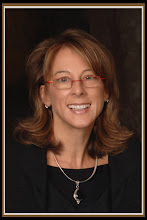 When Rachel mailed me her book, Hopping Roller Coasters, I had no idea what to expect. I warned her that it might take me months to read it, as I never seem to find the time to read for fun. However, I ended up taking the book everywhere; stealing whatever time I could to read on, captivated by her writing. Hopping Roller Coasters is a fabulous book about a mother and daughter; mental illness; falling, getting up. And then along comes cancer. It's about loving, being loved; forgiving, being forgiven. It is a brutally honest account of the lives of one family, one that likely resonates with so many more, whether they have experienced mental illness or not. I was truly moved by this honesty, and the strength and courage that allowed them to overcome. Thank you, Rachel, for sharing your story.
When Rachel mailed me her book, Hopping Roller Coasters, I had no idea what to expect. I warned her that it might take me months to read it, as I never seem to find the time to read for fun. However, I ended up taking the book everywhere; stealing whatever time I could to read on, captivated by her writing. Hopping Roller Coasters is a fabulous book about a mother and daughter; mental illness; falling, getting up. And then along comes cancer. It's about loving, being loved; forgiving, being forgiven. It is a brutally honest account of the lives of one family, one that likely resonates with so many more, whether they have experienced mental illness or not. I was truly moved by this honesty, and the strength and courage that allowed them to overcome. Thank you, Rachel, for sharing your story.When I read the fantastic review written by Marie Ennis-O’Connor, founder of Journeying Beyond Breast Cancer, I asked Marie if I could share her thoughts. Thank you Marie, for sharing and for all you do to brighten the days of others.
“I never planned on becoming a breast cancer survivor because, like most people, I never planned on having cancer. When you’re a young woman, breast cancer is the last thing on your mind. I naively believed it only happened to older women and there was certainly no room in my busy life for such an interruption. I was 34 years of age when I was diagnosed with breast cancer, and about to learn that cancer is no respecter of age.” Marie Ennis-O’Connor
Below is Maries Review:
Rachel is a terrific writer and just like a roller coaster, her story moves at quite a thrilling pace, taking you from the highs of Marina’s birth, the happy times they shared as a family, and then plunging to the lows of Marina’s school struggles, Rachel’s depression and oh yes..the small matter of Rachel’s breast cancer diagnosis in September 2009.
Rachel writes with brutal honesty of her fierce love for her daughter, but also of how she, by unintentional words and actions compounded Marina’s own predisposition to mental illness.
Throughout Rachel’s cancer treatment, her main concern was always the effect this would have on her daughter, but in the end, cancer was a chance for them to heal their sometimes fractured relationship.
“Cancer sucks, but I had another shot at breaking the two steps forward, one step backward pattern in reaching out to my daughter. I had another ‘second chance’—no matter how much longer l lived.”
Rachel’s cancer diagnosis was a way for this mother and daughter to get their relationship back on track. It was a way to teach them, and by extension the reader, valuable lessons on love, relationships, and forgiveness.
This book is so well told, with no trace of self-pity, and there is so much love within the pages. I admire the relationship between Rachel and her rock of a husband, Paul, who has stood by her and their daughter through all the difficult times. Rachel’s parents were also a great support, and I felt my heart constrict when reading about her Dad’s diagnosis of cancer towards the end of the book. Rachel’s father passed away on the same day as my Mom last November.
There is also humor in the pages of this book. When discussing among themselves how their friends haven’t asked after Marina when she has been hospitalized, Rachel muses that “if you’ve never experienced it, it’s probably hard to know what to think. Mental illness has such a stigma attached to it. I wonder if they picture her jumping up and down and peeing in corners or something.”
My husband laughed. “I’m thinking maybe this Christmas we should send a card like the ones we get from friends highlighting their kids’ accomplishments that year. Only we could say something like, “Well, Marina
Rachel Pappas is the Founder of 1UpOnCancer, which, just like her memoir is a place ultimately of hope and renewal. Rachel and her husband are empty nesters and Marina now lives with her boyfriend.
Marie Ennis-O'Connor
Editor, Journeying Beyond Breast Cancer
http://journeyingbeyondbreastcancer.com/
http://www.facebook.com/beyondbreastcancer
www.linkedin.com/MarieEnnisO'Connor
Editor, Journeying Beyond Breast Cancer
http://journeyingbeyondbreastcancer.com/
http://www.facebook.com/beyondbreastcancer
www.linkedin.com/MarieEnnisO'Connor
Marie Ennis-O'Connor is a public relations professional, specializing in healthcare communications and non-profit social media marketing. She is a passionate believer in using social media for good and is editor and writer of the Journeying Beyond Breast Cancer blog. http://journeyingbeyondbreastcancer.com/
****************************************
Elyn Jacobs
elynjacobs.wordpress.com
Elyn Jacobs is a certified cancer coach, a breast cancer survivor, and the Executive Director for the Emerald Heart Cancer Foundation. She empowers women to choose the path for treatment that best fits their own individual needs. She is passionate about helping others move forward into a life of health and wellbeing. To learn more about Elyn’s coaching services, please visit: http://elynjacobs.wordpress.com.















